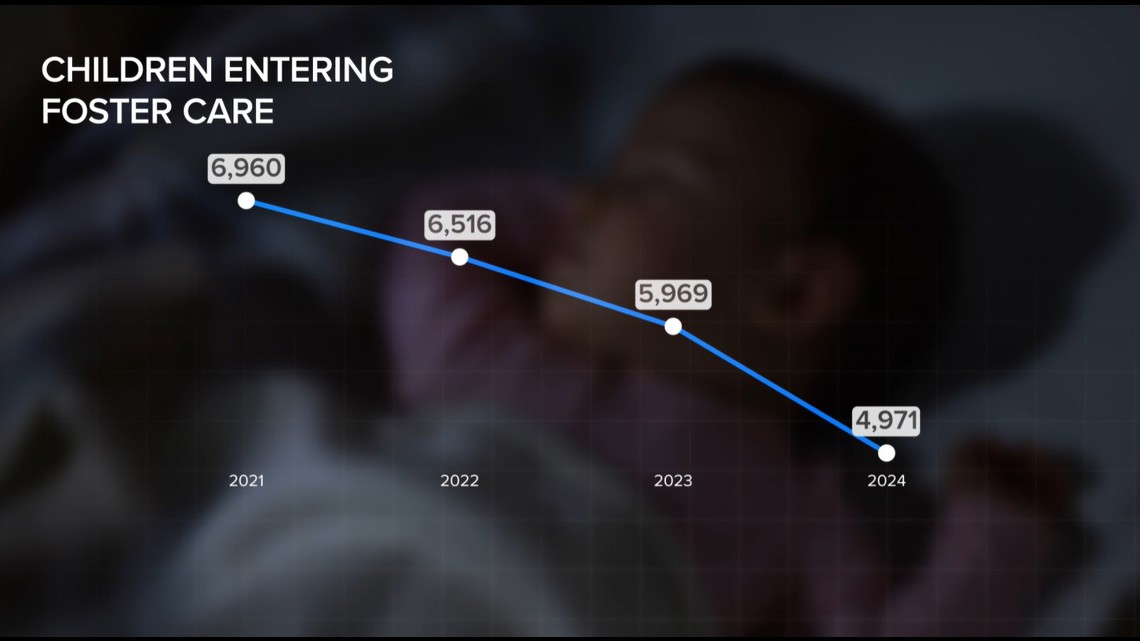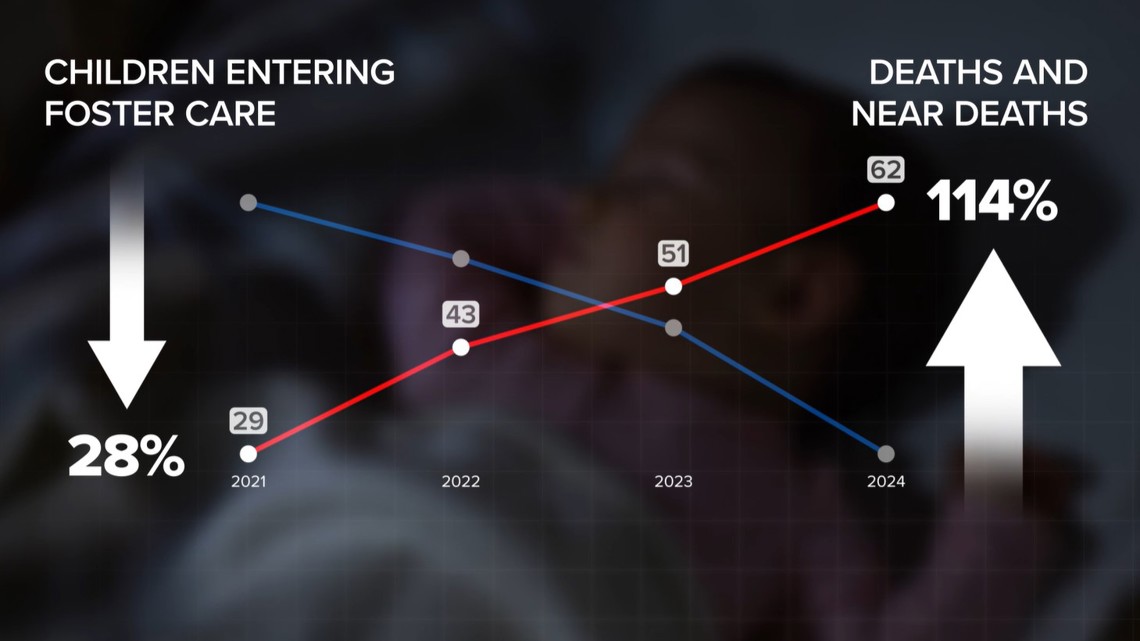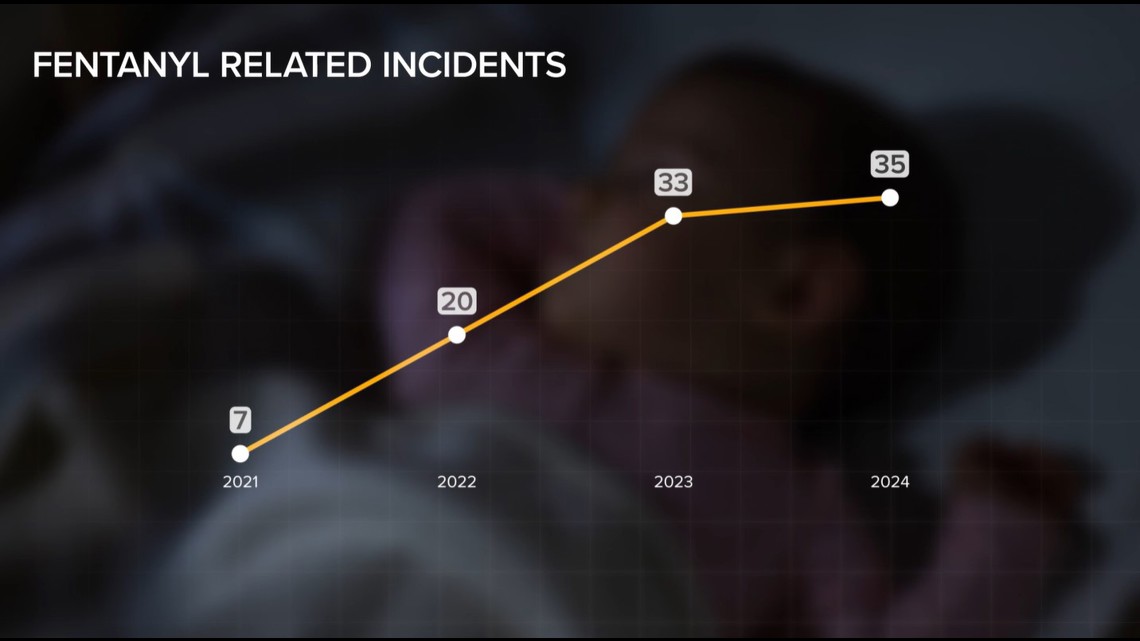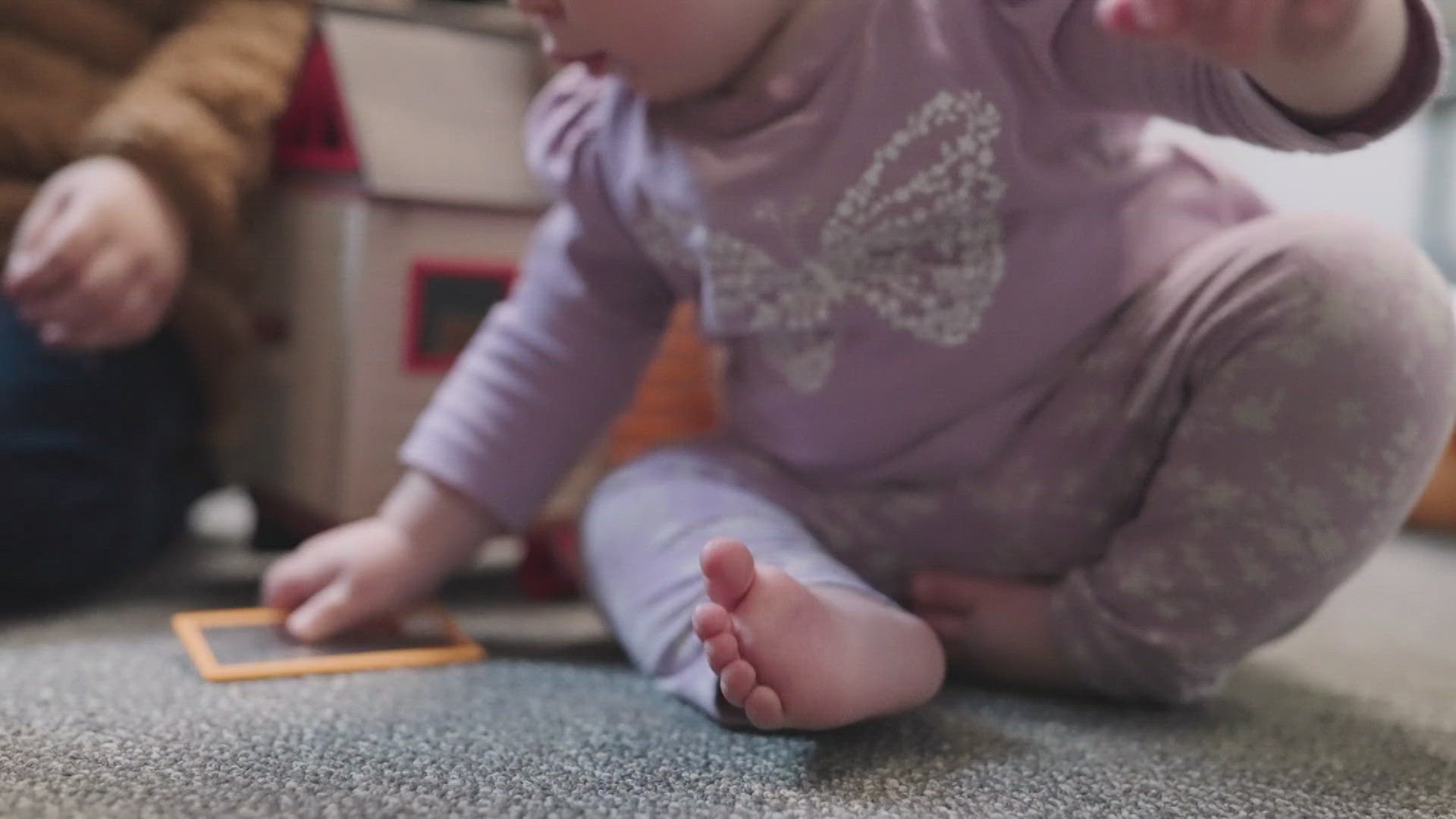WASHINGTON, USA — A group of western Washington foster moms is calling for changes to a state law they argue is putting children at risk by making it harder for Child Protective Services (CPS) to remove kids from dangerous homes. The advocates, all of whom have cared for babies born addicted to fentanyl, are working to overturn the law, which they say has failed to protect vulnerable children.
KING 5 asked a group of five foster mothers if they believed the law was directly leading to more deaths. They all said yes.
"I do think this is the biggest safety crisis for children in the system," one of the foster moms said.
In 2023, the Washington state legislature passed the Keeping Families Together Act, a law designed to help keep children with their parents whenever possible. Representative Lillian Ortiz-Self, a Mukilteo Democrat who sponsored the bill, argued that the law was necessary to address the harm caused by separating children from their families. On her website, she stated that it was time to recognize the "irrevocable damage" caused when children were removed from their homes.
Under the new law, CPS can only remove a child from a home if there is evidence of imminent physical harm. This is a step further than the previous policy, which allowed children to be removed in cases of neglect or abuse, including cases where babies were born addicted to highly toxic fentanyl.
The law has led to a significant decrease in the number of children placed into foster care. Since the law's passage, the number of children entering foster care has dropped by 28%, but the shift has had serious consequences. State records show a dramatic increase in child deaths and near deaths, with fentanyl exposure playing a key role. In fact, deaths and near-deaths of children have risen by 114% since the law was enacted, with most of the victims being babies and toddlers.






Foster moms like Erika and Tracie, who care for children affected by substance abuse, argue that the law is setting up families for failure. "We're just setting everyone up for failure and loss and heartbreak," Erika said. Tracie expressed her frustration, saying, “I’m angry that anybody thinks it would be okay to hand over a young child to somebody under the influence that we have all recognized as lethal."
One of the key dangers is the fentanyl that has been found in the homes of some parents. Babies and toddlers are ingesting fentanyl pills, mistaking them for candy, or even putting straws or foil used for smoking the drug in their mouths. Police reports have revealed that it doesn’t take much fentanyl to harm a child—just a few dots of the substance can be lethal.
"It's a reality that we face every day with every child that we care for or interact with potentially, and it’s heartbreaking," said Tracie.
"It’s really scary when I know the parents are in active use and kids are going there," Erika said.
The tragic case of 3-year-old Prince of Tacoma illustrates the risk. Prince had been in foster care since birth but was reunified with his mother under the new law. Just six months later, he was dead. His mother is accused of torturing and beating him to death.
Tristan, a foster parent, said, "It’s heartbreaking when you see over and over again that you can’t get these kids and their parents together safely and how broken it is."
The growing concern over child safety prompted a Senate committee to hold a public meeting to examine the law. A pediatrician from Olympia testified that the law needed to be revised to protect children from fentanyl.
"These toddlers are showing up in our emergency rooms unresponsive, needing full life support, and we don’t know why until we figure out it’s fentanyl. These children are dying," said Dr. Joyce Gilbert.
Following this testimony, lawmakers expressed urgency over the issue. Rep. Spencer Hutchins (R) stated, “This is about the children of Washington being protected from adults who aren’t protecting them.”
In response to the public outcry, lawmakers revised the law. Fentanyl exposure is now considered a factor that could place a child in immediate harm, which may justify removal. However, foster parents like Tracie and Erika believe that the changes still don’t go far enough.
"If nothing happens with this law, what is going to happen?" Tracie said. "Kids are going to keep dying, and we’re going to see more and more kids die."
As the debate continues, advocates remain determined to ensure that children—especially those born into homes struggling with addiction—are protected from harm.

